The maternal health crisis is the clearest example of why our healthcare system needs to evolve.
As provider institutions, you can have an outsized impact on solving this crisis by leaning into the four roles you play – not just as providers but also as employers, community partners, and advocates.
To support your efforts and make it easier for you to hone in on each role, we have given each one its own chapter. Each describes why the role is important to advancing maternal health equity and excellence, provides suggestions for decision-makers on how to assess their organization's progress and needs, and a menu of action items that can be tailored to their specific needs, priorities, and readiness for change.
The maternal health crisis is the clearest example of why our healthcare system needs to evolve.
As provider institutions, you can have an outsized impact on solving this crisis by leaning into the four roles you play – not just as providers but also as employers, community partners, and advocates.
To support your efforts and make it easier for you to hone in on each role, we have given each one its own chapter. Each describes why the role is important to advancing maternal health equity and excellence, provides suggestions for decision-makers on how to assess their organization's progress and needs, and a menu of action items that can be tailored to their specific needs, priorities, and readiness for change.
The maternal health crisis is the clearest example of why our healthcare system needs to evolve.
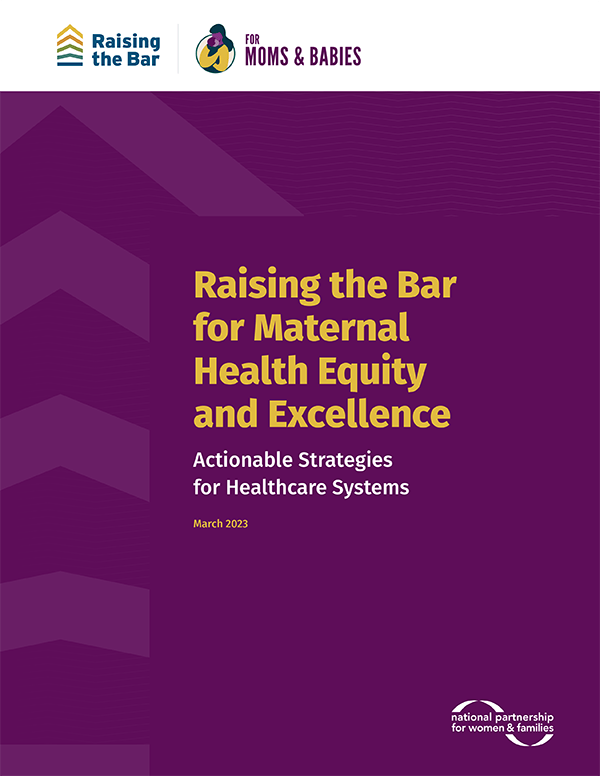
As provider institutions, you can have an outsized impact on solving this crisis by leaning into the four roles you play – not just as providers but also as employers, community partners, and advocates.
To support your efforts and make it easier for you to hone in on each role, we have given each one its own chapter. Each describes why the role is important to advancing maternal health equity and excellence, provides suggestions for decision-makers on how to assess their organization's progress and needs, and a menu of action items that can be tailored to their specific needs, priorities, and readiness for change.
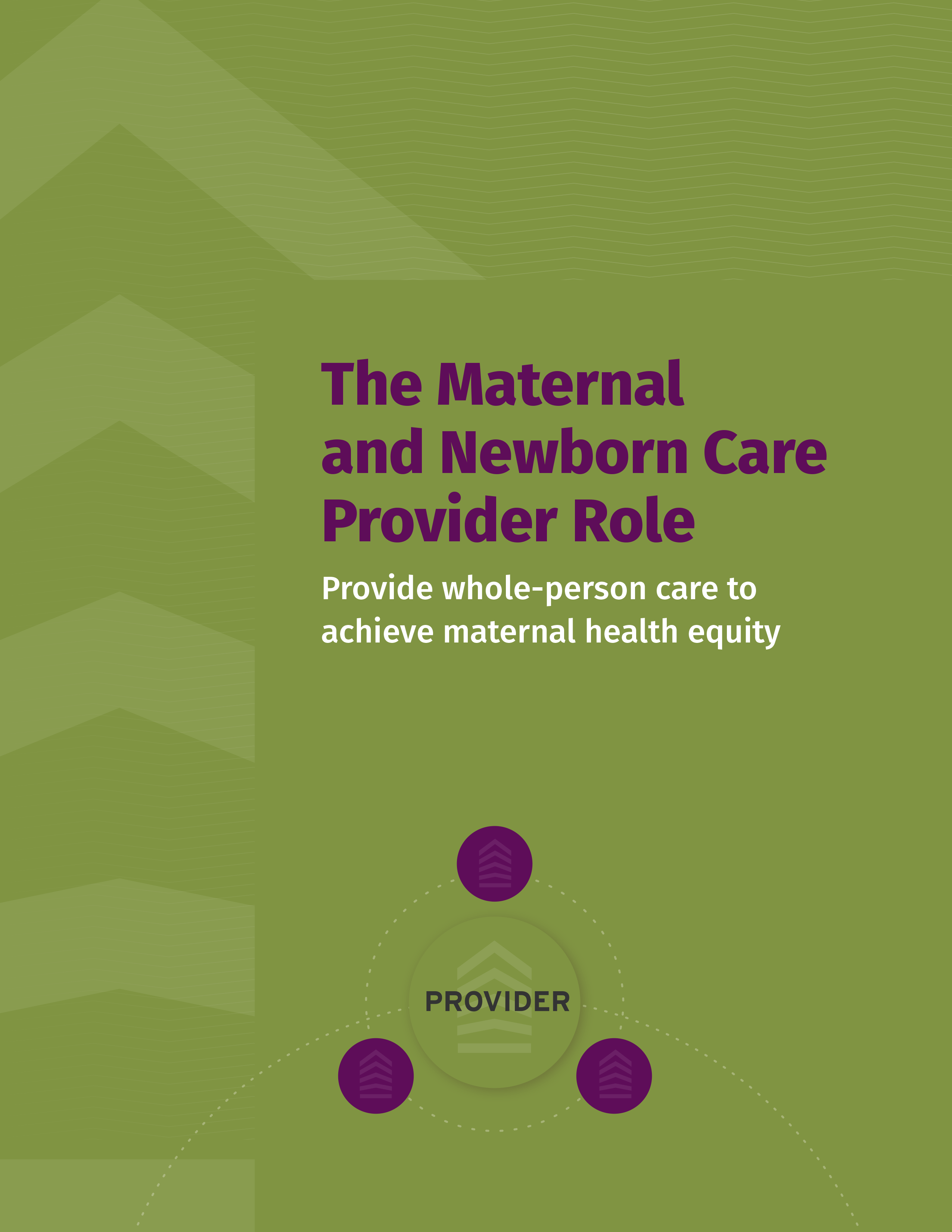
Provide Whole-Person Care to Achieve Maternal Health Equity
Maternity care providers must be able to offer high-quality, culturally centered whole-person care that responds to birthing families’ context and overall physical, mental, and social well-being.
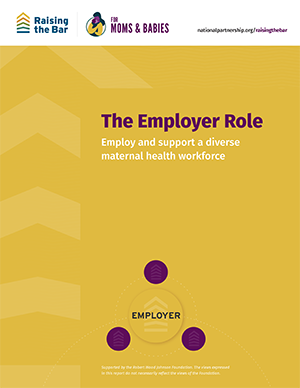
Employ and Support a Diverse Maternal Health Workforce
Healthcare institutions have a crucial opportunity to exemplify best practices in diversifying and supporting a workforce primed to provide high-quality, equitable care that benefits both their staff and their patients.
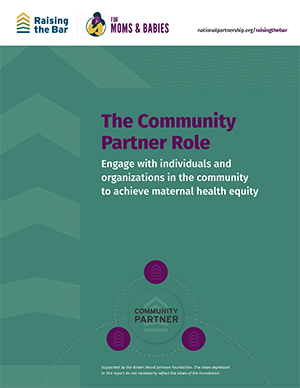
Engage with Individuals and Organizations in the Community To Achieve Maternal Health Equity
Effective and sustainable strategies and programs require authentic collaboration with those most affected by barriers to good health. To succeed, healthcare provider institutions must strengthen engagement and build trust with their surrounding communities.
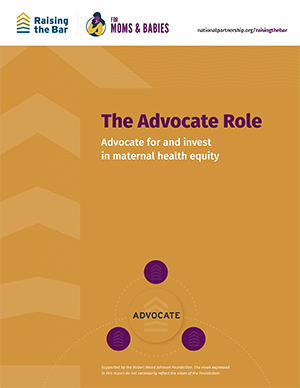
Advocate for and Invest in Maternal Health Equity
Healthcare provider institutions have a powerful role to play as policy and economic leaders that can help shape better systems and direct resources to advance maternal health equity and community well-being.
“The National Birth Equity Collaborative (NBEC) is firmly committed to initiatives like Raising the Bar that seeks to improve maternal health equity through a whole-person, anti-racist lens. Black mothers and parents deserve respectful, safe, and equitable healthcare that can only be achieved through a holistic approach to improve the current maternity care system.”
— Carmen Green, Vice President of Research and Strategy, National Birth Equity Collaborative (NBEC)







